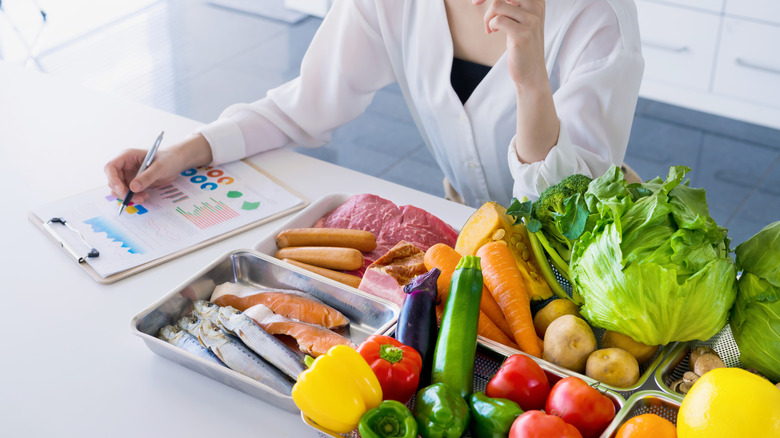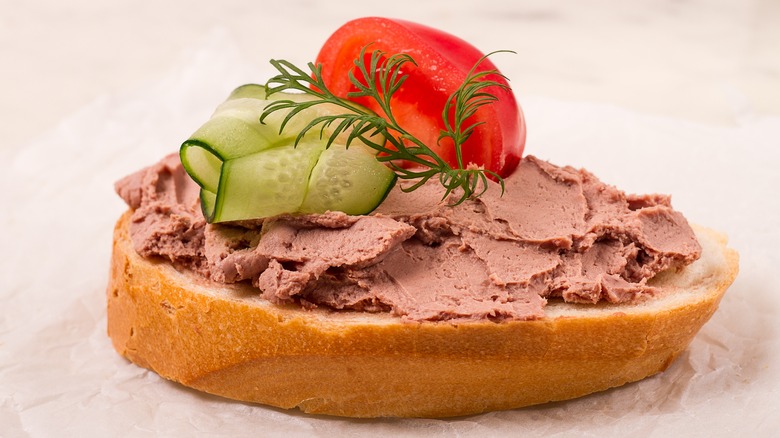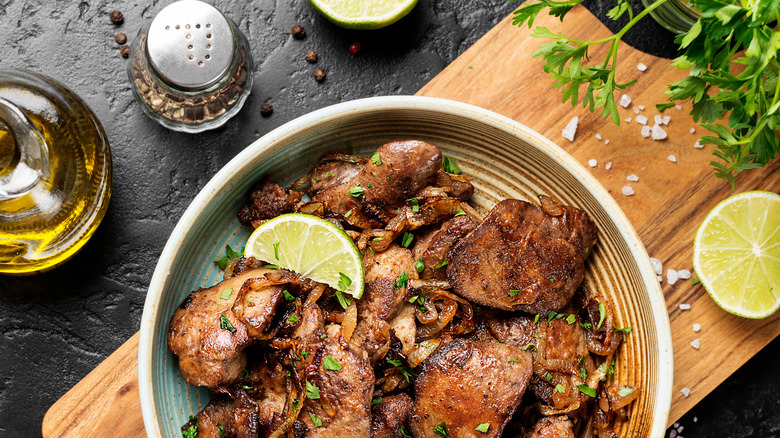Can You Eat Liver While Pregnant?
Liver might not be high on the most common pregnancy cravings list, or the list of your favorite foods, due to its strong taste. However, robust flavors are often highly desired when cravings strike.
Beef liver is red meat, which is actually one of the top craved foods during pregnancy (via Verywell Family). Other commonly craved foods include sweets, pickles, ice cream, dairy, chocolate, and fruit. Beef liver is a popular choice but chicken and lamb's liver is also an option (via BBC goodfood). Liver and onions is one of the most well-known recipes but there are several other ways to prepare it.
Even if you don't normally eat liver, you may unknowingly be consuming it. Liver can be incorporated into salads and is also a common ingredient in pâté.
If you enjoy liver, you may want to continue eating it while pregnant but wonder about its health risks. Here's what you should know about consuming liver during pregnancy.
Liver has a good amount of nutrients
According to WebMD, "liver is one of the most nutritionally dense foods on the planet." It contains a bevy of nutrients including vitamins B and C, iron, potassium, phosphorus, folate, niacin, and riboflavin.
Beef liver provides protein and also iron. Iron is a vital nutrient during pregnancy. You'll also need more iron when pregnant because your blood volume greatly increases so your iron reserve will also need to increase to help make enough hemoglobin (via Mayo Clinic).
Your baby will use the oxygen made by the iron in your body. An insufficient amount of iron may result in you developing iron deficiency anemia which can lead to premature birth, low birth weight, and postpartum depression.
In addition, folate which includes several B vitamins as well as folic acid, is vital for the prevention of birth defects.
While there are so many healthy and nutritious vitamins found in liver, sometimes too much of a good thing can be harmful.
Watch out for too much Vitamin A
It's uncommon advice for pregnant people to be wary of getting too many vitamins but that's exactly what can happen when consuming too much liver. Liver contains such high levels of vitamin A that it can be toxic to the baby and also to you (via BabyCenter). Surprisingly, you don't even need to consume a lot of liver in order to go over recommended amounts.
Unlike water-soluble vitamins, such as vitamin B, which are used by the body, and then whatever is not used gets excreted in the urine, vitamin A builds up in your body.
The World Health Organization (WHO) advises no more than 1 ounce of liver a day which equals 10,000 international units, the guideline they deem to be safe (via Pregnancy Food Checker). In the UK, they are a bit stricter and advise against eating any liver or liver products during pregnancy (via National Health Service).
Keep in mind that it's unlikely that most people will eat liver on a daily basis, but it's wise to remember to enjoy liver and liver products sparingly.


